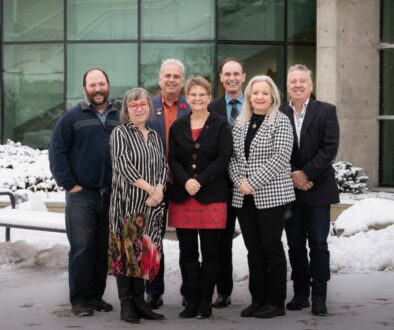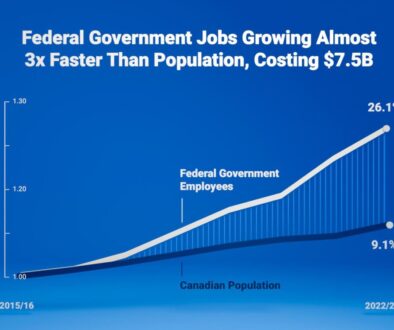Euro- Canadians and Christianity
The evidence is indisputable: Canada was built from the ground up by indigenous Euro- Canadians with next to 0 immigration from non- white world. The claim that Canada is a “nation of diverse immigrants” is a willful act of deception intended to justify the ethnocide of Euro-Canadians. Most of the men and women who built Canada were INDIGENOUS to this nation, and the ones who came from outside were overwhelmingly French, Irish, British, Scottish and European until the 1970s.
In 1867, 79% percent of Canadian residents had been born in Canada. Before Confederation, there were only “two quite limited periods” of substantial immigration: from 1783 to 1812, and from 1830 to 1850. In these two periods, immigrants came primarily from the British Isles. From 1871 to 1891, a high fertility rate allowed the population of Canada to grow from 3.7 to 4.8 million.
The Quebecois and the Acadians were a people created through the fecundity of the women, not immigration. Immigration contributed only about one seventh (1/7) to the total population growth of New France from its beginnings to its conquest in 1763. The French-speaking population numbered about 90,000 by the 1770s, and thereafter, until the late 1800s, the population expanded rapidly because women were having 5.65 surviving children on average. The increase in population in Quebec during the 1800s was also a result of the continuing high birth rate. By 1950, the Quebec population was almost 4 million, and this increase was primarily a result of the continuing high fertility rates. Only in the 1970s did Montreal start to see an increasing inflow of non-European immigrants.

The estimated 50,000 Loyalists who came to Canada were not immigrants, but settlers native to the soils of British North America: they moved from American lands that were thoroughly British to Canadian lands that were also British. Between 1896 and 1914, Canada did experience high immigration levels with 2.5 to 3 million arriving within this period. However, the ethnic composition of the nation remained 84 percent British and Quebecois, while the European component rose to 9 percent.
Between 1941 and 1962 the population of Canada increased from 11.5 million to 18.5 million largely as a result of “extremely high domestic birth rates”. It was only after the imposition of multiculturalism in 1971 that immigrants from outside the West started to arrive in large numbers. In 1971, over 96% of the Canadian population was White. Therefore: Canada was created by native Euro-Canadians.
In a statement to the House of Commons on 8 October 1971, Prime Minister Pierre Trudeau announced multiculturalism as an official government policy. Multiculturalism was intended to preserve the cultural freedom of all individuals and provide recognition of the cultural contributions of diverse ethnic groups to Canadian society.
https://pier21.ca/research/immigration-history/canadian-multiculturalism-policy-1971
All the institutions, legal system, educational curriculum, transformation of wilderness into productive farms, all the cities, the parliamentary traditions, the churches, the entire infrastructure of railways, ports, shipping industries, and highways, were created by hardworking Euro-Canadians.
Only White Christians care for the wellbeing of all races and non-Christians. Hindus do not send holy men into Africa to feed children; they will not do it for their own poor in India. Buddhists are benevolent towards all but in a state of detachment without offering charity. Muslims take care of Muslims. Particular religions like Shinto are localized and don’t get involve with people outside. Judaism is only for the protection of Jews. So, can white Christians survive expressing goodness for non-Christian races that constitute 90% of the world’s population and are eagerly coming to the West to promote their interests and live off whites? Christians need to seriously think about this fundamental question of survival — or the white race is doomed.

There is a fundamental difference between Christianity and all non-Western religions that is generally overlooked. Islam is inherently traditionalist, and so is Confucianism, Judaism, and every other religion of the world. For traditionalist cultures the aim of knowledge is to conserve rather than create. The ultimate wisdom lies in a “golden age” in the past. The task of subsequent thinkers is to ensure the culture remains anchored to the secure wisdom attained in the past.
In the Islamic case, God has already made manifest to man His will in the Koran, beginning with Muhammad’s recitation of the Koran in the year 610. In Islam, “knowledge” meant knowledge of traditions, and those who possessed such knowledge were “those who know”. The existing knowledge could be reformulated and refined, but no new knowledge could be generated in the future.
Christianity is not traditionalist in this way, for it holds that God did not reveal to men the complete truth from the beginning. It gave men the free will to search and strive for the development of new truths in the course of historical time. Christianity also envisions history as linear, rather than cyclical, as is the case with traditional cultures, including Talmudic Judaism, which has an apocalyptic view of history with predetermined stages from the beginning of time — never able to make sense of actual secular historical events, for Jewish history lacked real development, novelties, progression.
Christianity, in contrast, absorbed the historical experience of the Greeks and Romans, and tried to find meaning, patterns, stages in the empirical history of men. This Christian view would eventually be secularised into the modern idea of progress, with one Enlightenment thinker after another identifying definite stages of history. This idea of progress could only be articulated in the West because only this civilization experienced actual historical progression, new discoveries, continuous increases in knowledge, and improvements in the manners of men. The result of this progression, and its endorsement by Western thinkers, would be the complete elimination of all customs, traditions, constitutions, and prejudices deemed to stand as “obstacles” to the liberty of individuals to construct their own meanings, identities, and values.
Liberal pluralism allows traditional beliefs but only as private preferences. The public liberal sphere is inherently pluralist, and does not tolerate the “intolerance” of traditions. Only Russia, among the nations created by ethnic Europeans, would avoid an endorsement of this liberal, tradition-less view of society. For Russia never absorbed the Greek idea that reason should be the sole adjudicator of meaning; the Christianity that it embraced, unlike Catholicism, was not theological, but based on non-rational images of icons, sounds of bells, and historical memories.
The West is now set for self-elimination, valuing only the future, erasing its past, without memories and ethnic roots — while Islam, China, India, and African cultures will survive, inundating the West with their own peoples while preserving their identities. The only sustainable white people in the world will be in Russia.
RD, DB



